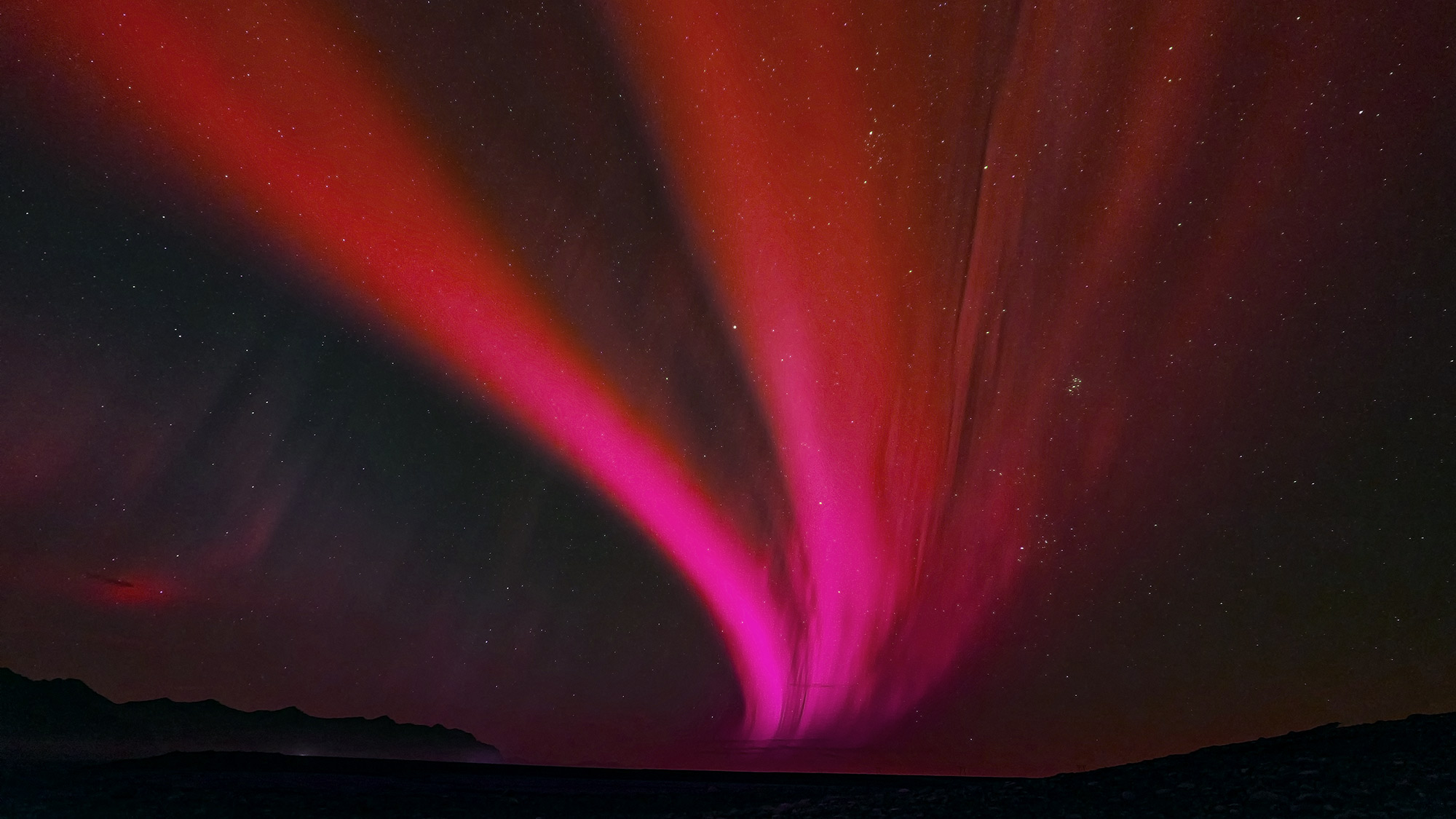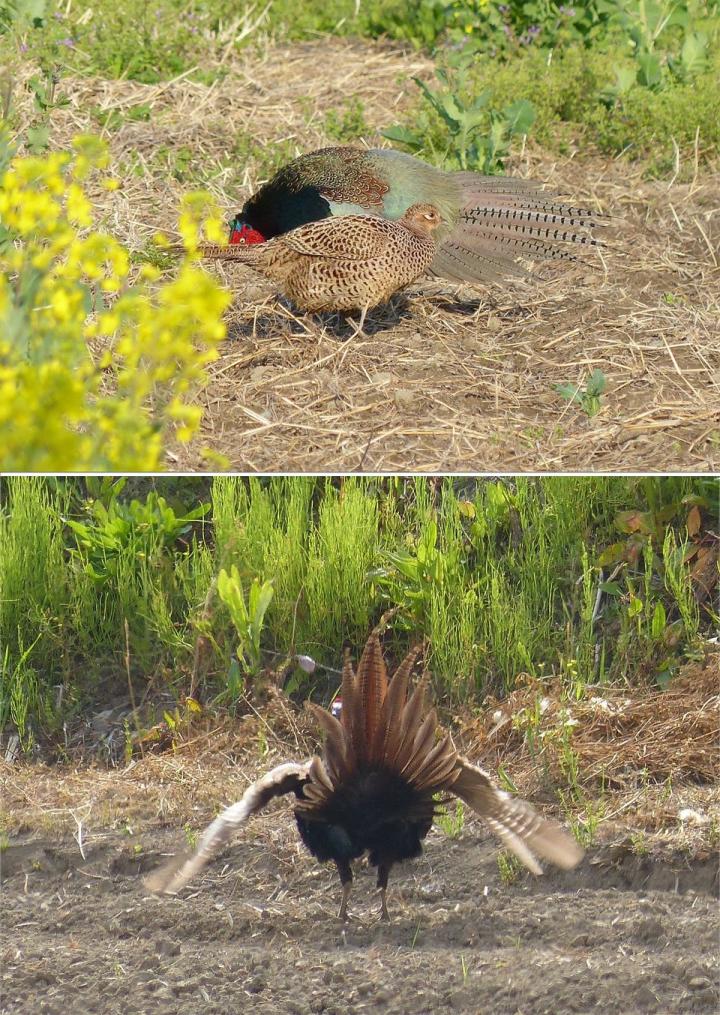1,400-year-old mystery of strange 'red sign' in Japan's sky solved

A scarlet fan spread across the skies over Japan 1,400 years ago, and it's been puzzling astronomers ever since.
According to historical records, on Dec. 30, 620, a "red sign" shaped like "a pheasant tail" appeared in the sky. At the time, the sign was considered a bad omen. Modern scientists looking back at the report have wondered whether the spectacle may have been caused by an aurora or a comet, but neither of those explanations quite made sense.
Ryuho Kataoka, who studies space weather at the National Institute of Polar Research in Japan, and his colleagues decided they wanted to investigate what could have caused the scarlet phenomenon, according to a statement.
Related: Bright green aurora bird takes flight with a running rabbit over Iceland (photo)
They began by comparing the historical description with a modern understanding of auroras. Although these celestial dances are often green, they can appear in other colors, including red, depending on which elements in Earth's atmosphere are being activated by charged particles spit out by the sun.
The team tracked down more recent observations of auroras that were visible over Japan in a fan shape with a red background. That matches the "pheasant tail" description of the 620 event. The researchers also mapped what Earth's changing magnetic field would have looked like at the time, suggesting that Japan would have been around 33 degrees of magnetic latitude in 620, as opposed to 25 degrees today, according to the statement.

The researchers also analyzed another hypothesis about the "red sign" — that it was caused by a comet. But such spectacles usually aren't tinged red, and the team determined that there should have been a low probability of a comet streaking by at the time.
Breaking space news, the latest updates on rocket launches, skywatching events and more!
"This is an interesting and successful example that modern science can benefit from the ancient Japanese emotion evoked when the surprising appearance of heaven reminded them of a familiar bird," Kataoka said.
The research is described in a paper published March 31 in the Sokendai Review of Culture and Social Studies.
- Where to see the northern lights: 2020 aurora borealis guide
- Glowing green 'dunes' in the sky mesmerized skygazers. They turned out to be a new kind of aurora.
- In images: Rising 'phoenix' aurora and starburst galaxies light up the skies
Email Meghan Bartels at mbartels@space.com or follow her @meghanbartels. Follow us on Twitter @Spacedotcom and on Facebook.
OFFER: Save at least 56% with our latest magazine deal!
All About Space magazine takes you on an awe-inspiring journey through our solar system and beyond, from the amazing technology and spacecraft that enables humanity to venture into orbit, to the complexities of space science.

Meghan is a senior writer at Space.com and has more than five years' experience as a science journalist based in New York City. She joined Space.com in July 2018, with previous writing published in outlets including Newsweek and Audubon. Meghan earned an MA in science journalism from New York University and a BA in classics from Georgetown University, and in her free time she enjoys reading and visiting museums. Follow her on Twitter at @meghanbartels.

